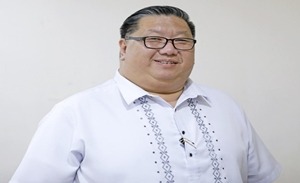ESPRESSO MORNINGS
By Joe Zaldarriaga

Joe also shares his opinion and outlook on relevant national and consumer issues as a columnist in several prominent publications and is now venturing into new media via hosting a new vlog called Cup of Joe. Previously, Joe was a reporter and desk editor of a Broadcasting Company and the former auditor of the Defense Press Corps of the Philippines. A true green Lasalian, he finished with a degree in Asian Studies specializing in the Japan Studies program at De La Salle University, Manila, where he also spent his entire education.
The dry season is here, which means that we will see a spike in electricity consumption as more Filipinos turn to longer use of cooling appliances to cope with searing temperatures.
Studies have shown that historically, energy demand increases by around 10 percent to 40 percent between March and June, given the prolonged use of air conditioners and electric fans.
This year, the onset of the dry season comes as our country continues to weather the impact of El Nino—the effects of which are expected to last until May, according to weather bureau PAGASA.
With these conditions, it is timely to recognize the need to be smarter in our electricity use and to embody the spirit of bayanihan to manage the increasing energy demand.
Just recently, the Department of Energy (DOE) issued an advisory calling on the National Grid Corporation of the Philippines (NGCP) and distribution utilities to “be fully ready to activate and implement” the Interruptible Load Program (ILP) in time for the dry season. The ILP is a voluntary demand-side management mechanism that aims to spare households from power interruptions during instances of Red Alert or when the electricity supply is insufficient.
The advisory is a call for bayanihan in the business sector to help ensure continuous electricity service to households, many of which lack generators, and help prevent potential power interruptions. With extremely hot temperatures, continuous electricity service is a must, and ensuring so requires active cooperation among all stakeholders.
The ILP is not only a demand-side management program, in a way, it is a collaboration tool that promotes a sense of shared responsibility for our energy utilization and our pursuit of a sustainable energy future. This early on, we must realize that we all play a role in energy demand-side management.
The government, for its part, should continue to proactively engage all energy industry stakeholders and be aggressive in communicating the benefits of joining the ILP to the business sector. In the Meralco franchise area for example, there are over 100 companies enrolled in the ILP equivalent to more than 500 MW of de-loading capacity.
On the part of the business sector, the ILP presents an opportunity for them to show their commitment to nation-building by contributing to the well-being of the communities they serve.
For households, embracing energy efficiency as a way of life is a big help to manage power demand. While Meralco recently announced a significant decrease of almost one peso per kilowatt hour in its electricity rate, households should continue to use electricity wisely.
For example, during this dry season, we can tailor-fit our activities to better conserve energy such as by using natural lighting whenever and wherever possible, sun-drying clothes instead of using a dryer, optimizing the temperature setting of the air conditioner to 25 degrees Celsius instead of 18 degrees Celsius.
By embracing energy efficiency, households not only contribute to demand-side management but also reap economic benefits as they are empowered to have better control over their electricity bills.
Beyond the management of energy demand and electricity bills, the impact of energy efficiency is long-term and crucial in our country’s push for a sustainable energy future. By eliminating unnecessary energy consumption, we lessen our carbon footprint and help mitigate the environmental impact associated with power generation.
The benefits of energy efficiency cannot be stressed enough. As responsible citizens, we must embody the spirit of bayanihan through mindful consumption.
For now, may we all view energy efficiency as a way of life that, if collectively practiced, contributes significantly to our push for a sustainable energy future that benefits all of us.





